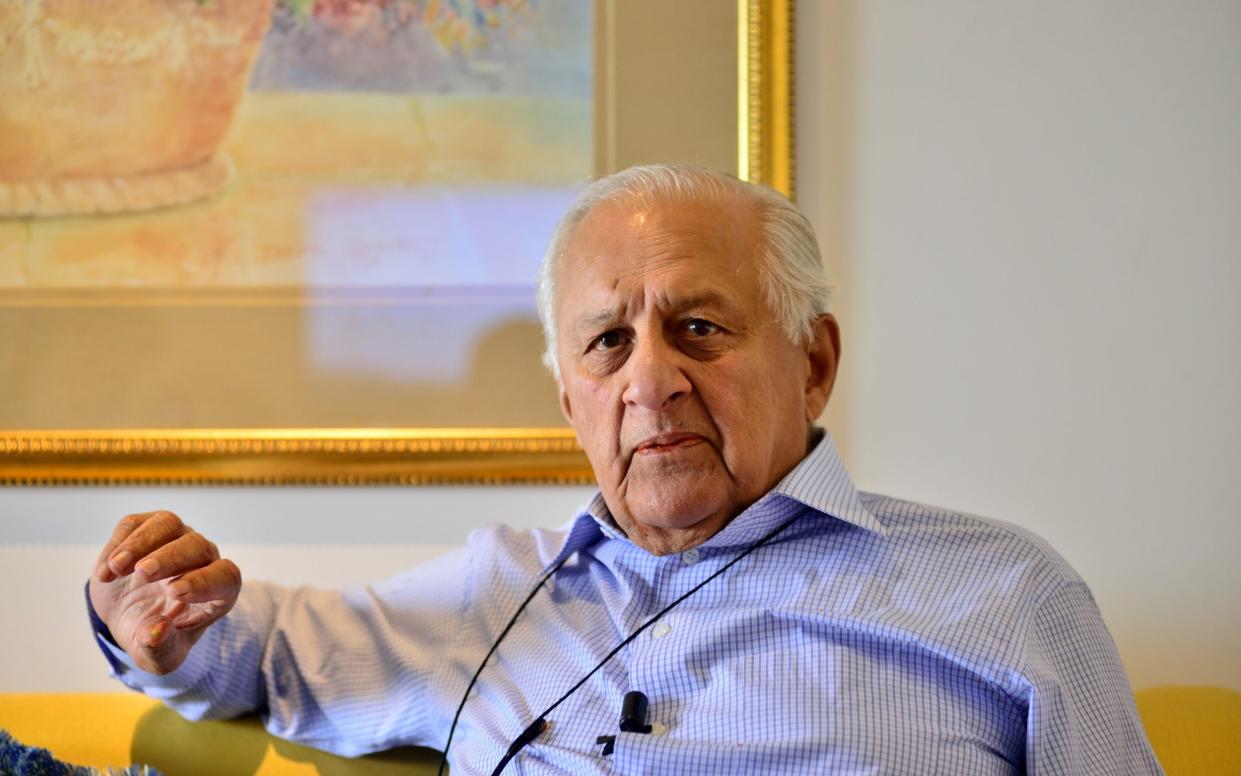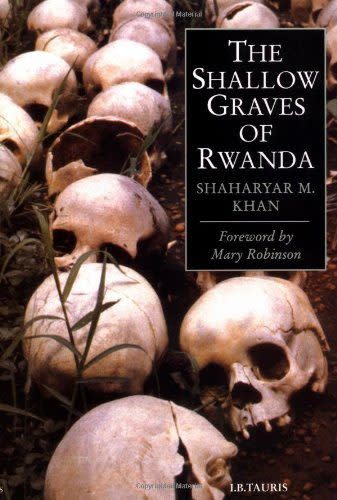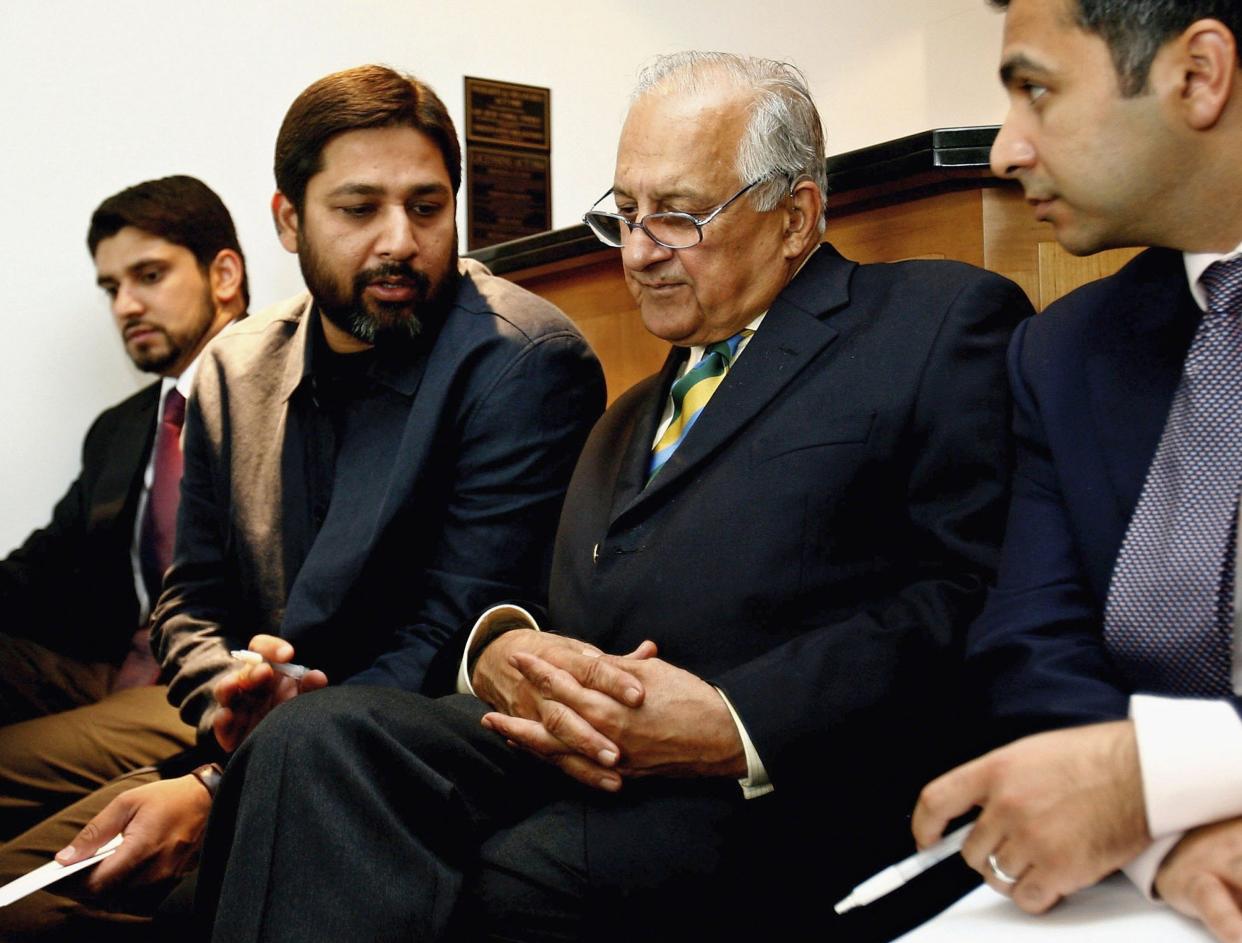Shaharyar Khan, UN special representative in Kigali during the Rwandan genocide – obituary

Shaharyar Khan, who has died aged 89, was the scion of two princely houses in British India who became Pakistan’s top diplomat and was twice chairman of cricket’s governing body in that country. In 1994, at the start of the Rwandan genocide, he was appointed by Boutros Boutros-Ghali, the Secretary-General, as United Nations special representative in Kigali, an experience which he later turned into a book, The Shallow Graves of Rwanda.
Shaharyar Mohammed Khan was born in 1934, the only child of Sarwar Ali Khan, the Nawab of Kurwai State in central India, and Abida Sultan, heir apparent to the state of Bhopal. The couple separated a year or two after their son’s birth.
He recollected being brought up in the royal palace in Bhopal, which had over 50 rooms and 200 inhabitants, from family members to servants and security staff. Along with two other boys, one a Hindu, the other a Muslim, both adopted by his mother, he was tutored at home. At the age of nine, in a rite of passage towards manhood, he shot a tiger.
In 1945 his mother sent him to the Royal Indian Military College in Dehradun to toughen him up. Two months before Partition in 1947, when signs of the appalling communal violence to come were apparent, he was moved to Daly College in Indore. After the assassination of Mahatma Gandhi the following year, when the religious affiliation of the murderer was not yet known, Khan’s mother persuaded the headmaster to allow her to take the dozen or so Muslim boys in the school to the safety of Bhopal.
Before his mother migrated to Karachi following the Partition of India, Khan was packed off as a boarder to Oundle School in Northamptonshire. It was a culture shock. He remembered finding it difficult to find a quiet spot to say his prayers because the English boys would make fun of him. He thought it odd that they would undress in front of each other in a room full of people and found their hygiene habits repugnant. He won the respect of his peers by being selected to play cricket for the school at the age of 14.
Khan completed his formal education at Corpus Christi, Cambridge, where he read law. The college made him an honorary fellow in 2005. After working briefly for Burmah Shell, Khan joined Pakistan’s diplomatic service.
Khan rose to become ambassador to Jordan and head of Pakistan’s mission to the UN in Geneva. He was High Commissioner in London from 1987 to 1990, when he returned to Islamabad as foreign secretary, the Pakistani equivalent of the permanent under-secretary at the British Foreign, Commonwealth & Development Office.
Following his formal retirement as a diplomat he served as ambassador to France (where he was disappointed to find the garden of the Paris residency too small to permit him to practise his bowling) and chairman of the committee on foreign service reforms within the foreign ministry.

His UN job in Rwanda began after the Hutu president, Juvénal Habiyarimana, and his Burundian counterpart were assassinated in April 1994 when their plane was shot down with surface-to-air missiles on its approach to Kigali. Their deaths triggered the Rwandan genocide, during which Hutu militias are estimated to have killed between 500,000 and 800,000 of the Tutsi minority. Khan, who remained UN special representative till 1996, dealing both with genocide and the ensuing refugee crisis, described his time there as a nightmare.
Khan was faced with the daunting task of co-ordinating activities between competing specialised agencies. In his memoir he bemoaned the limitations on his authority when he wrote that the special representative “should carry the proverbial stick and carrot in his hand, yet he is given neither”.
In 2003 Khan was appointed chairman of the Pakistan Cricket Board and moved to Lahore, where it is based. The last year of his tenure, 2006, was marked by the umpires’ awarding victory to England during the fourth Test at the Oval after the visitors had been penalised for ball tampering and had refused to return to the field after the tea interval.
He served again as board chairman between 2014 and 2017, and was president of the Asian Cricket Council in 2016.

Khan, who was a cousin of India’s cricket captain the Nawab of Pataudi and a member of the MCC, was a great believer in the game as a unifying force between nations. In retirement, he published Cricket: a Bridge of Peace (2005), and Shadows Across the Playing Field: 60 Years of India-Pakistan Cricket (2009), which he co-authored with the Indian politician Shashi Taroor. With his son Ali Khan he wrote Cricket Cauldron: The Turbulent Politics of Sport in Pakistan (2013).
Outside cricket, as well as his eyewitness account of the Rwandan genocide, he wrote The Begums of Bhopal, a history of his four female ancestors who ruled the princely state from 1819 to 1926, and a biography of his mother.
In 1958 he married Najma, whose father was a diplomat who would also rise to the top of the foreign service, and whose mother was the daughter of Nawab Mushtaq Ali Khan of Mankula. She survives him with their three sons and daughter.
Shaharyar Khan, born March 29 1934, died March 23 2024


